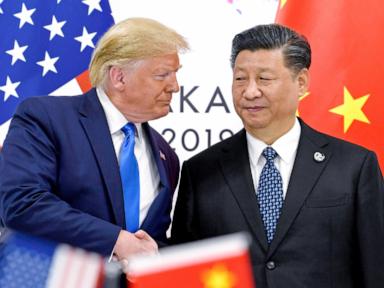China Demands US Withdraw Tariff Threat Amid Trade Tensions

China has firmly rejected any suggestion of backing down in its ongoing trade dispute with the United States, demanding that President Donald Trump withdraw his recent tariff threat. This exchange marks another escalation in the trade tensions between the two nations. Over the weekend, Trump announced a potential 100% tariff on all imports from China after the Chinese government imposed stricter controls on rare earth elements, essential for electronics production.
The announcement from China took many by surprise, including Trump, who described it as an “out of the blue” move. Despite the escalation, Trump’s tone appeared somewhat softer compared to previous statements. In a post on Truth Social on Sunday, he expressed a willingness to assist China, stating, “The U.S.A. wants to help China, not hurt it!!!”
China’s Response to U.S. Tariff Threat
In a detailed response issued on Sunday, China’s Ministry of Commerce criticized the U.S. for what it termed “severely damaging the atmosphere of trade negotiations.” Spokesman Lin Jian emphasized the need for the U.S. to “promptly correct its erroneous practices.” He warned that if the U.S. continued on its current path, China would take “resolute measures” to protect its legitimate rights and interests.
The trade conflict has seen both nations employ a variety of tactics. The U.S. has restricted China’s access to advanced computer chips, while China has halted purchases of American soybeans. These actions have led to significant shifts in trade dynamics, with economic indicators reflecting the impact of the ongoing dispute.
Recent data released by China reveals troubling trends in trade with the U.S. Exports to the United States have decreased for six consecutive months, showing a stark 27% decline in September compared to the previous year. This downward trajectory highlights the tangible effects of the tariffs and countermeasures taken by both countries.
Broader Implications of the Trade War
The ramifications of this trade war extend beyond just tariffs. The uncertainties surrounding trade policies have prompted businesses to rethink their strategies and supply chains, potentially leading to long-term economic consequences for both nations. As the situation develops, it remains crucial for stakeholders to monitor the evolving landscape of international trade relations.
As both sides continue to navigate this complicated and tense situation, the prospects for resolution appear uncertain. The ongoing dialogue is vital, yet the increasing rhetoric and retaliatory measures suggest that significant challenges remain on the horizon for U.S.-China trade relations.






